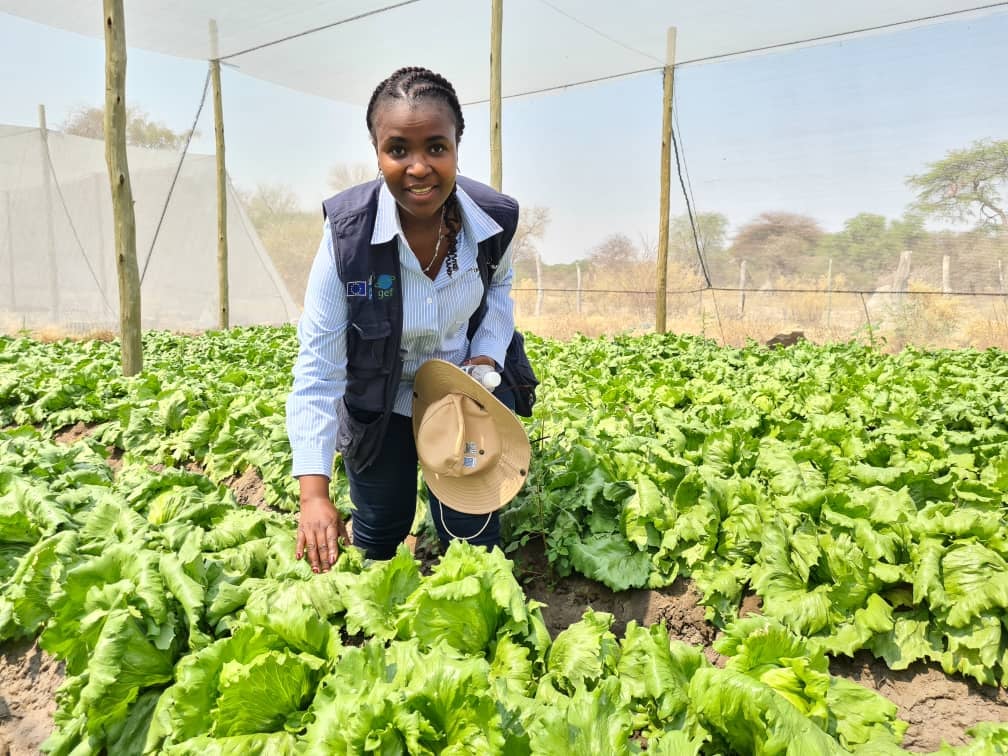Protecting the Cubango-Okavango River to support livelihoods
Posted in : Blog on 23 April 2025

The Cubango-Okavango River Basin is home to 1 million people and one of the world’s most pristine rivers.
The Cubango-Okavango River begins in the highlands of Angola, flows through Namibia, and then enters Botswana, where it forms the Okavango Delta. The rich biodiversity of the Delta, one of the world’s largest, makes it a World Heritage site and a wetland of international importance. The Delta is a vast inland oasis in the Kalahari Desert, supporting a wide variety of wildlife and livelihoods. However, people living near this treasured but fragile resource are among the poorest in the three countries because of low levels of economic development and distance from the main economic centers.
Poverty is not only a challenge for families but also for the long-term sustainability of the
Cubango-Okavango River Basin (CORB). In recognition of the importance of joint and coordinated management of the basin, the three CORB countries established the Permanent Okavango River Basin Water Commission (OKACOM) in 1994.
Tracy Molefi, program coordinator at OKACOM, says that she and her colleagues are determined to promote sustainable development and management of the CORB while also improving livelihoods of communities. The main vehicle to achieve these goals is the OKACOM Strategic Action Program supported by various partners including the Cooperation for International Waters in Africa Program (CIWA). In keeping with OKACOM’s Gender Mainstreaming Strategy and Implementation Plan, OKACOM is also taking concrete action aimed at promoting gender equality and the empowerment of women and other vulnerable groups.
While there is a thriving tourism industry in Botswana and Namibia, most people work as subsistence farmers, fish, or collect reeds and grass to make baskets and mats to sell in markets.
When Molefi began her career, she worked directly with CORB communities. “I understand their plight,” she says. “I understand their challenges. I understand the issues on the ground.”
“As much as I am an environmentalist,” says Molefi, who has a master’s degree in environmental science from the University of Botswana, “it is equally important for communities and countries to accrue benefits from this shared resource.”
Enhancing climate-smart livelihoods
CIWA Program provided earlier support to OKACOM resulting in a Multi-Sector Investment Opportunities Analysis (MSIOA). The analysis identified different development scenarios, considering potential economic, social, environmental, and climate-resilient trajectories to the year 2040. It recommended three development paths, including a livelihoods enhancement program, a tourism investment framework to mobilize private-sector resources, and cooperative infrastructure development.
The pathways provide OKACOM with a framework to address the underlying drivers of poverty while protecting the environmental integrity and sustainability of the basin’s water resources.
“The MSIOA was really helpful because it put things in perspective for OKACOM in terms of what needs to be done and where it can be done,” Molefi says. “It helped shape the OKACOM program going forward.”
The CIWA project will address livelihoods from a climate- resilience perspective.
Now CIWA is funding the preparation of a livelihoods program as part of its support to the Regional Climate Resilience Program for Eastern and Southern Africa Project (RCRP). The project will build on existing initiatives to provide short-term interventions and deliver relatively quick returns over three-to-five years. This will demonstrate the proof of concept for a longer-term sustained livelihoods initiative.
CIWA’s Bank-executed grant has three components. First, it will develop a program to prioritize pro-poor and resilient investments and assess the contribution of basin activities to job creation, economic growth, and environmental and social well-being that takes into consideration gender and social inclusion. Second, it will strengthen the enabling environment for the execution of a long-term livelihoods program and provide support for the operations of the CORB Endowment Fund, a unique entity created to mobilize resources for livelihoods and sustainable resource use. Third, it will provide institutional support to the OKACOM Secretariat to implement the project.
Benefits must “accrue to the people”
The CORB, as elsewhere in Africa, is experiencing extreme rainfall variability and weather events ranging from dry spells to floods. The reduction in the river’s water level in Angola in 2021 and 2022, for example, forced the suspension of some livelihoods demonstration projects using climate-smart agricultural approaches because there wasn’t enough water for farmers to grow their vegetables.
The MSIOA found that the Delta is more sensitive to climate change than other parts of the Basin, especially to ecological and biodiversity impacts, and recommended a focus on mitigation of a drying climate.
The CIWA project will address livelihoods from a climate-resilience perspective. For example, it could support non-timber options for livelihoods, as people’s use of charcoal and trees for energy has led to deforestation and degradation, Molefi says. It could also support expansion and replication of the demonstration climate-smart horticulture livelihoods projects with access to markets.
“What is important,” Molefi says, “is the long-term sustainability of the resource and enhanced livelihoods options that support the co-existence of human and natural resources of the Cubango-Okavango River Basin. It is our responsibility, as managers of OKACOM, to ensure that the people are taken care of. And it’s important that, while countries commit to working together toward conservation of the resource, they also ensure that benefits accrue to the people.”
“This support from CIWA to build this program is critical,” Molefi adds. “And it’s also coming at the right time, when OKACOM has completed the implementation of the demonstration project, which provides good lessons learned for possible replication under the CIWA support.”


